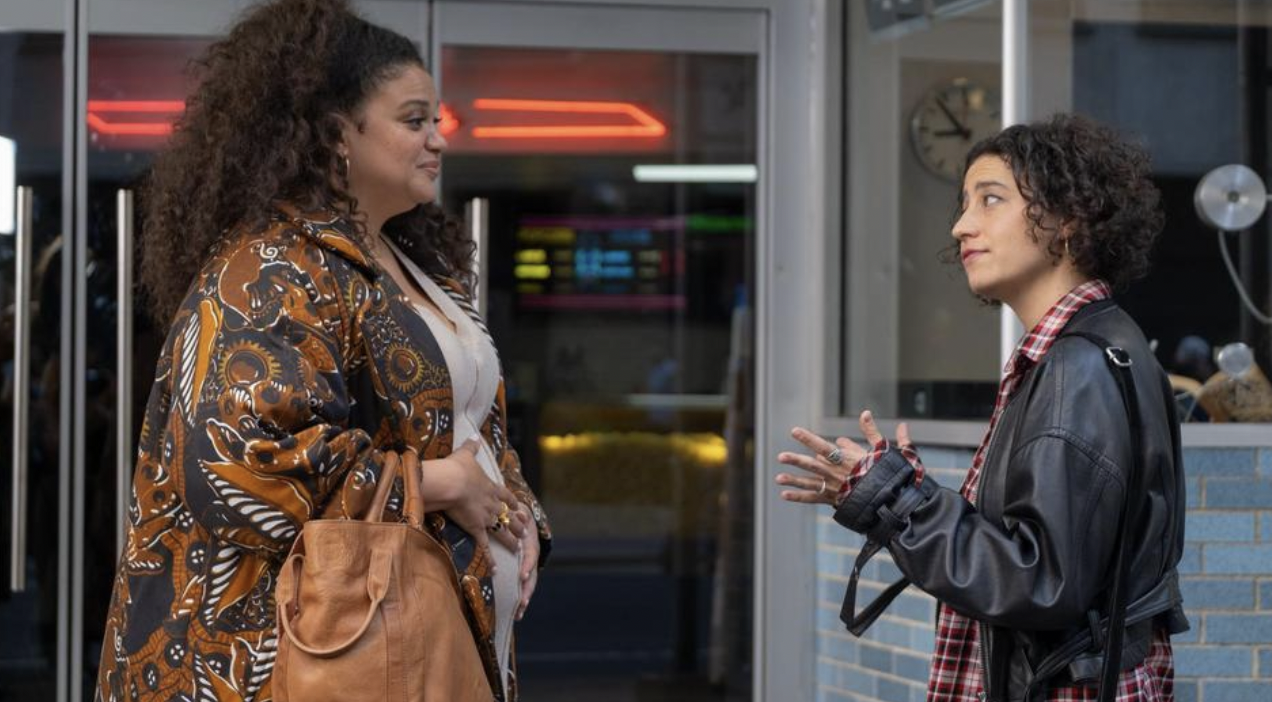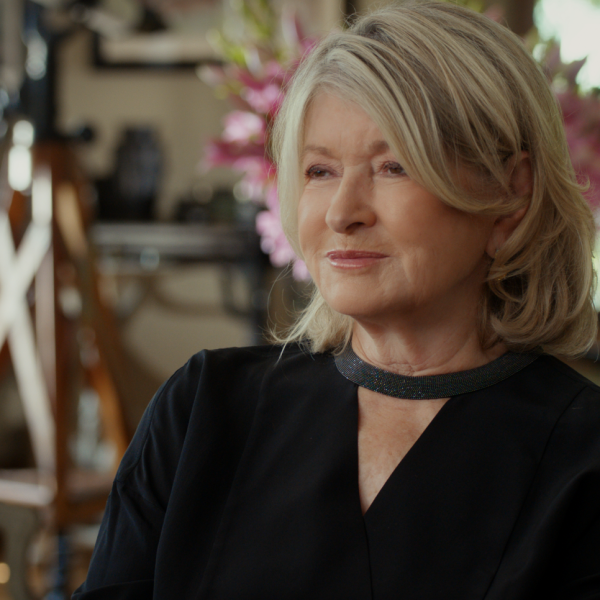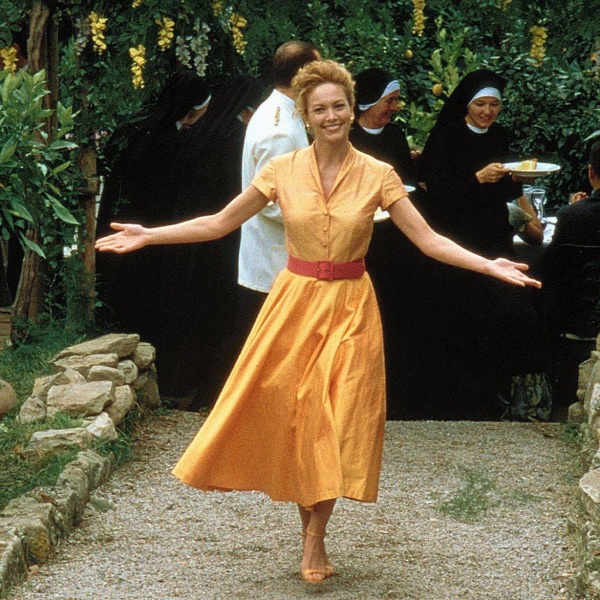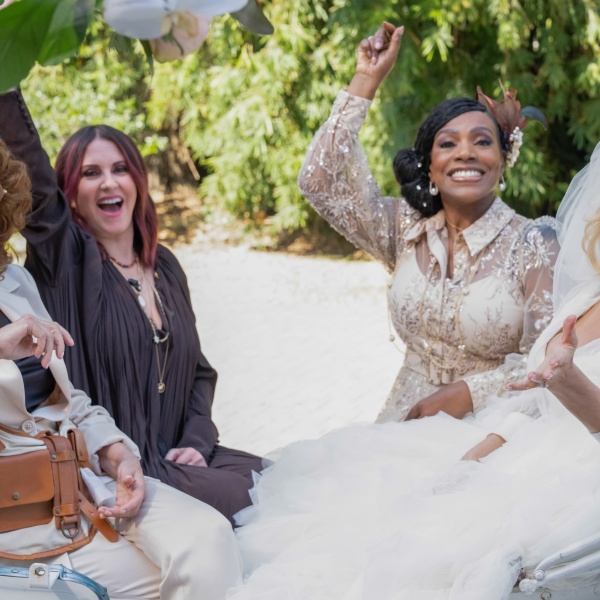If asked to summarize Ilana Glazer’s cultural impact with one moment from her decade in the limelight, most fans wouldn’t hesitate to pick the “Broad City” scene where she dismisses the idea of settling down in her late 20s. “Marriage?” Glazer says with astonishment in a much quoted exchange. “I’m only 27! What am I, a child bride?”
The line has long been a rallying cry for young women who feel unfairly pressured by the traditional milestones of adulthood, and its enduring appeal speaks to the unique niche Glazer carved out for herself. She rose to stardom during the heyday of Lena Dunham’s “Girls,” when a new wave of female comics built loyal fanbases by sharing graphic details about their financial struggles, bodily functions, sex lives, and the general feeling of unpreparedness they all felt for adult responsibilities. Through five seasons of “Broad City” and roles in films like “Rough Night,” Glazer has become a prominent face of the idea that our 20s have simply become a decade-long extension of childhood.
While 27-year-olds will likely express their ambivalence about marriage through “Broad City” memes for years to come, Glazer seems determined to reconcile the Peter Pan syndrome that made her a star with the fact that she now has a family of her own. She co-wrote and stars in “Babes,” Pamela Adlon‘s directorial debut that tackles the realities of pregnancy and early motherhood with the same scatological honesty that made her Comedy Central series such a hit. But while “Babes” begins its approach to domesticity with the same aversion to responsibility that powered “Broad City,” it ultimately settles on a more mature attitude that illustrates the way many of Glazer’s fans are growing up alongside her.
When we meet Eden (Glazer), she’s quite happy in her life of charmingly dysfunctional independence. She operates her own yoga studio out of her fourth floor walkup apartment in Astoria, safely engages in hookup culture through regular visits to her favorite STD testing clinic, and sends daily texts about her bowel movements to her best friend Dawn (Michelle Buteau). The two women have been inseparable for two decades, but Dawn’s recent decision to move to the Upper West Side to raise a family with her husband (Hasan Minaj) has made their spontaneous hangout sessions few and far between.
Eden effectively functions as the third adult in Dawn’s family, but the weight of the term “effectively” becomes clear when she’s kicked out of the hospital at the end of visiting hours after watching Dawn give birth to her second child. Left to her own devices and unwilling to be alone with her thoughts, she ends up spending the evening eating sushi on the subway. She sparks up a flirty conversation with a stranger on the train, and she soon finds herself staying up all night in bed talking to a man who feels like he could be her soulmate.
When she never hears from her public transit lover again, she’s left to assume he ghosted her. But her life is turned upside down when she receives a one-two punch of shocking news: she’s pregnant, and the father is dead after tragically choking on an almond.
Eden decides to keep the baby, relying on Dawn to guide her through the tumultuous process of growing a human being inside her. Without a partner, family support, or even an elevator in her apartment, she soon finds that she bit off more than she ever expected to chew. But Glazer applies her playfully crass comedic gaze to everything from sonogram gentialia to delivery room defecation as Eden prepares for life’s biggest undertaking.
The humor is reminiscent of the groundbreaking dialogue Glazer brought to “Broad City,” but nothing can stay subversive forever. Any form of counterculture is destined to either burn out into obscurity or drop its prefix and become culture, and “Babes” feels like a clear example of the latter. Guided by Adlon’s steady directorial hand — this is her first feature, but she’s a seasoned professional after helming 44 episodes of her acclaimed FX series “Better Things” — “Babes” is an acknowledgement that Glazer and her peers have succeeded in molding mainstream pop culture to fit their vision. The film flows with the elegance and gravitas of a Woody Allen movie, with both Adlon and Glazer confidently accepting the fact that the burden of dictating their generation’s cultural depictions of parenthood now falls on them.
“Babes” touches on predictable Millennial themes like “chosen family” filling the void left by absent relatives, but it also acknowledges that contemporary trends aren’t always a fitting substitute for the life lessons our grandparents taught us. When Eden’s neediness begins to interfere with Dawn’s domestic responsibilities, a difficult conversation illuminates why, despite all of its flaws, the nuclear family is still a sensible lifestyle that sometimes solves more problems than it creates. As the lifelong friends search for a stasis that gives them some semblance of balance between their family and social lives, they learn that updated forms of timeless human institutions might actually be better than starting from scratch.
After a decade of speaking for fans who threw the old-fashioned steps of the success sequence out the window, it’s fitting that Glazer is now showing them which ones might be worth bringing back into the fold.
Grade: B
“Babes” premiered at SXSW 2024. Neon will release it in theaters on Friday, May 17.





